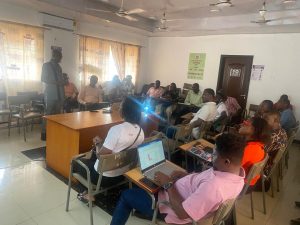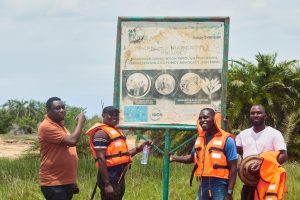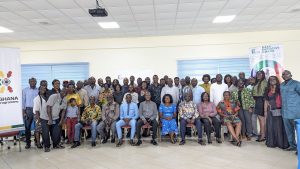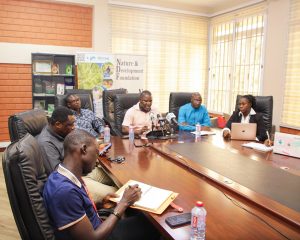Non- state actors in Ghana finally part of the NDC framework
What started out as an effort to align non-state actors such as not for profit organisations, Civil Society Organisations and enterprises to government action has led to the Government of Ghana expanding its Nationally Determined Contributions(NDC) Framework to accommodate climate change action by these institutions.
Kasa Initiative has spearheaded climate change, natural resources and environmental governance advocacy efforts in Ghana for 14 years now. Founded to ensure engagement between government, private sector, media and donor community on Ghana’s natural resources, the organisation now strives to create awareness and build capacities of citizens to become change makers and have agency over their own rights. The organisation has organised training, forums, media engagements as well as engagements with duty bearers in government on matters of climate change and how human activities such as exploration of minerals and agriculture impacts manifest.
The NDC framework outlines adaptation and mitigation employed by countries to reduce the emission of greenhouse gases under the Paris Agreement 2015. Ghana developed its first framework in 2015 and implementation in 2016 having ratified the agreement. This framework was again reviewed in 2021 with another review taking place in 2024 as per the four year execution window. Unfortunately, previous versions did not take into account the efforts non-state actors have made to reduce greenhouse gas emissions due to resource and capacity constraints. With the lack of reporting templates and data collection tools to harmonise the efforts of non-state actors, their efforts are left out in the final country’s submission of the NDC 1.0 and 2.0 to the United Nations Framework Convention on Climate Change. Addressing the challenges fronted by climate change requires collective action from government to private sector as well as tracking progress of the country’s measures.
To close this gap, advocacy efforts through engagements and capacity strengthening spearheaded by organizations, such as Kasa Initiative Ghana, IUCN, ISODEC and CIKOD, the Government of Ghana through the Ministry of Environment Science and Technology developed a reporting template and data collection tool designed by EPA to capture non state actors contributions on climate change initiatives in the Ghana NDC 3.0. To easen the amount of labour and time taken to engage each non-state actor for input, Kasa offered guidance on how to use the tools. Additionally, the organisation delegated focal persons for each sector for seamless dissemination of tools and relay of information
This is a significant advancement towards achieving a zero emission Ghana through collective efforts. Submissions by country which indicate the progress made by each member state towards the Paris Agreement promise to place Ghana at a vantage point compared to its peers due to such efforts. Ghana is due to submit their report early 2025.
By Lilian Mukami
Communications Officer






